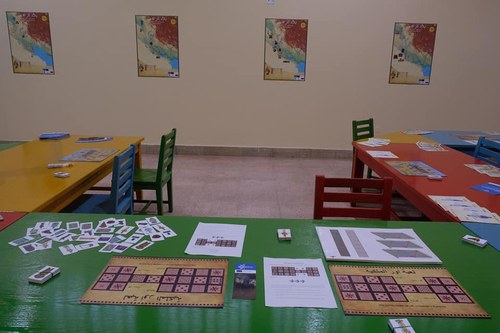
In the last few years, the SBAH made an urgent request to UNITO for collaborating on the reconstruction of the looted laboratories of the Iraq Museum in Baghdad, the renovation of the display rooms, and the reopening of the “Italian-Iraqi Institute of Archaeological Sciences” and the “Centre for the Restoration of Monuments” established in 1969. Discussing EDUU proposal, the SBAH has asked to focus project attention on provincial museums assets, and, in particular, the ones located in rural areas, which are extraordinarily rich in archaeological heritage but not sufficiently developed. In fact, provincial museums were looted during the 1991 Gulf War, so the finds were shipped to Baghdad and kept there ever since, depriving many provinces of their collections. Therefore the SBAH has chosen two museum to be part of the main developing activities of the project: Iraq Museum in Baghdad, King Ghazi Museum in the Diwaniyah region. Even if more developed, the Iraq Museum in Baghdad has been included for its strategic role in the Iraq cultural sphere. The two museums are affiliated entities of the SBAH which will actively collaborated in the restoration and reorganization activities.
This activity will be carried out in the frame of WP4. A first step will consists in the training of Iraqi museum operators in Italy in order to directly experience best practices in handling and disseminating cultural heritage. Then, the Eduu team will proceed to the design and development of the learning itineraries and materials based on fieldwork results and the goals of the project. In order to create new learning itineraries in the museums, the partners will install: panels, new glass cases with fieldwork findings, and multimedia materials. The panels (English-Arabic) are aimed at explaining the relevance of the local heritage and environment and the results of the researches carried out in the field through innovative high-impact visual material spanning from 3D reconstructions, to photogrammetric images, models, etc. Itineraries will be built keeping in mind the changes in landscape, societies and identities, gender and social inequality in the study areas, over time. The choice of creating bilingual panels is motivated by the need for Iraqi museums to adopt an international perspective in the presentation of their assets. Together with the installation of panels, the partners will display the fieldwork material findings in new cases.


